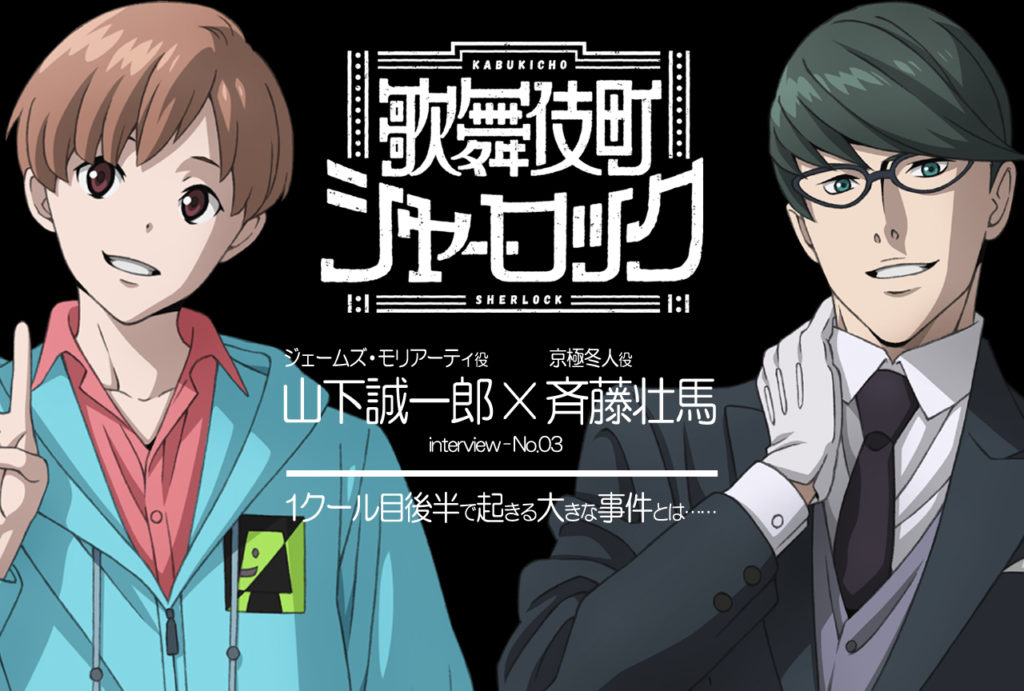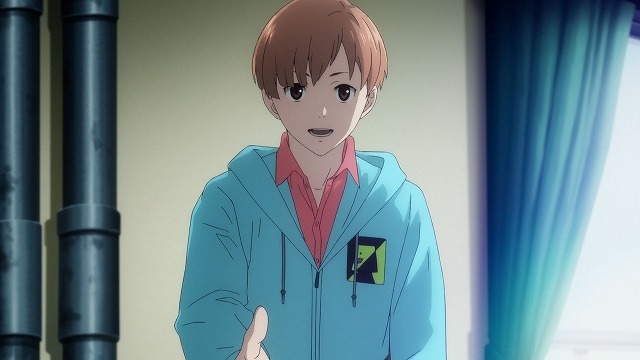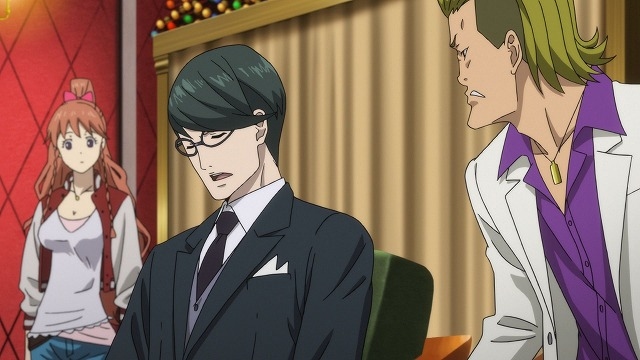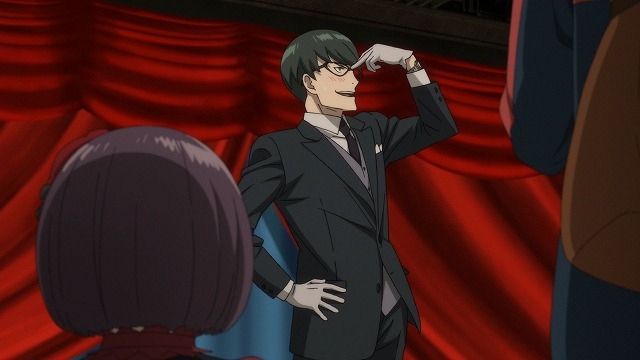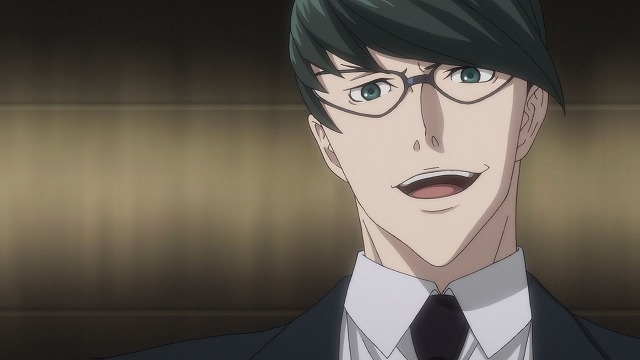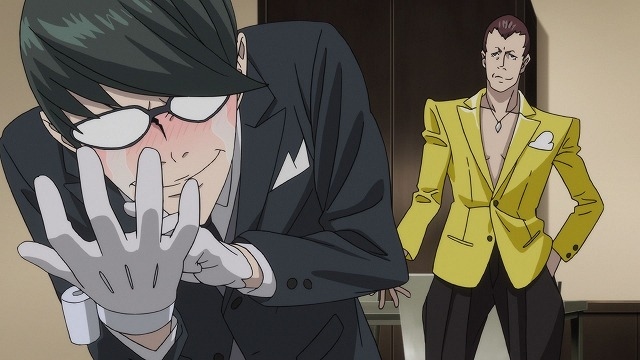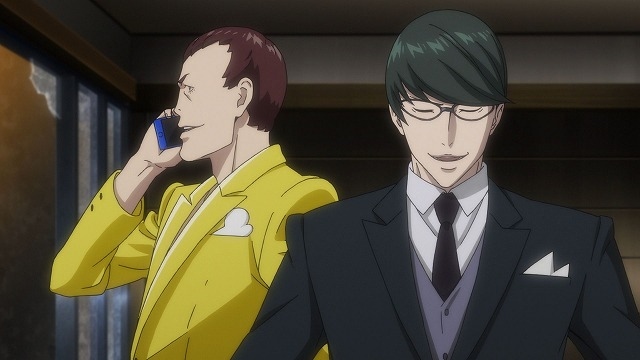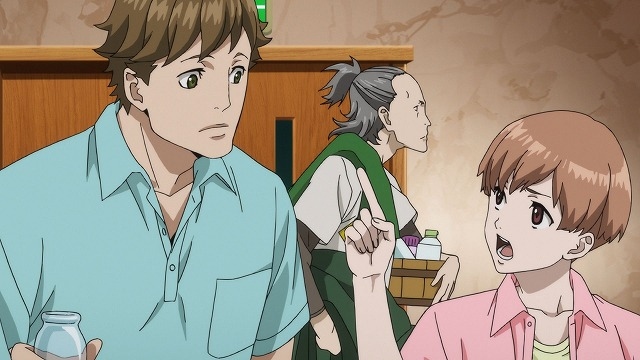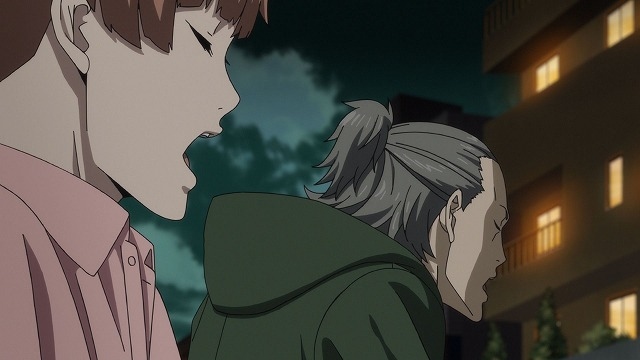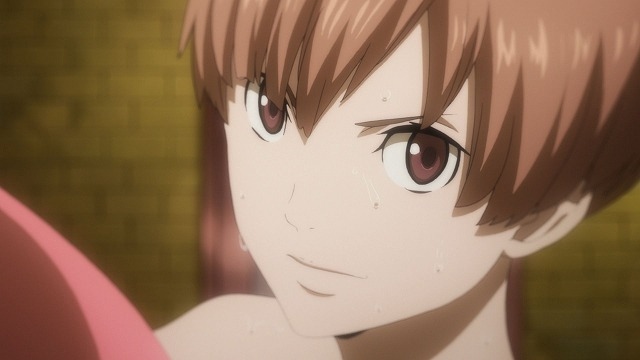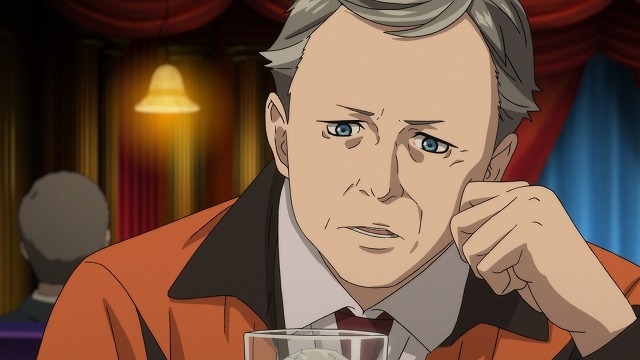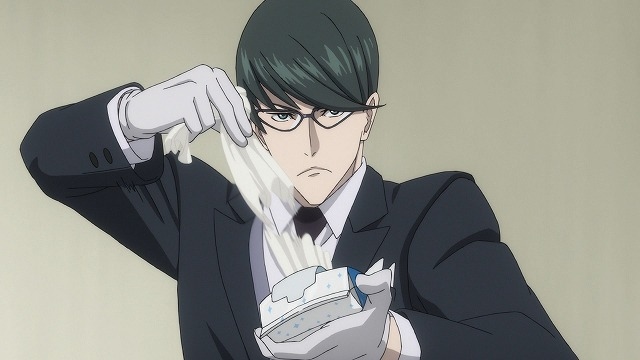


(There are many lovely pictures of Soma in this book, but I will not be taking it apart to scan. It is still well-stocked in stores that ship internationally (e.g. Amazon))
Released: 2020/1/29
Info: https://bookclub.kodansha.co.jp/product?item=0000334599
Features:
Maeno Tomoaki (Mika in Kuutei Dragons)
Amamiya Sora (Takita in Kuutei Dragons)
Saito Soma (Giraud in Kuutei Dragons)
Hanazawa Kana (Vanabelle in Kuutei Dragons)
Mentioned:
Seki Tomokazu (Croco in Kuutei Dragons)
Sakurai Takahiro (Niko in Kuutei Dragons)
Inoue Kazuhiko (Yoshi in Kuutei Dragons)
Uemura Yuto (Soraya in Kuutei Dragons)
Toriumi Kohsuke (Berko in Kuutei Dragons)
Akasaki Chinatsu (Mayne in Kuutei Dragons)
Takeuchi Shunsuke (Oken in Kuutei Dragons)
※Only Soma’s section and Soma-related parts from other sections are translated in this post.
Q: How did you find out about Kuutei Dragons?
I’ve always been an avid reader, and when I go to the bookstore, I look at the covers and spines of stacked books, check the promotional signs written by the store staff, and buy books and manga based on their covers. That was how I discovered Kuutei.
Kuwabara-sensei’s art is very appealing and exhibits a unique aura. The concept of people traveling through the sky in an airship while hunting dragons really tickled my fancy, and I thought it was amazing that it combined the multiple aspects of dragon-hunting adventure, human drama, and cooking. There were a lot of great characters, but as I was reading it, I subconsciously thought, “If I was to be involved with this work as an actor, I think I’d want to be Giraud.” So, when I heard about the audition, I eagerly asked to participate, thankful for the opportunity.
Q: When you read manga, do you often think about which character you’d play?
No, I usually just enjoy the story as a normal reader. When I really love the work’s story and setting, I might wonder about “what if I could be involved,” and Kuutei was one of those cases. I thought “I’d want to be Giraud” because he seemed like the character my voice would fit best. However, when I auditioned for Giraud, I honestly didn’t get much of a reaction. I wondered if my mental image of Giraud and my voice weren’t actually a good match for the character… So, I was happy when I got the role, because it meant that my interpretation of Giraud wasn’t completely off the mark. After that, the team at the recording studio would go on to become the crew of Quin Zaza, so there was nothing left but to entrust myself to them.
Q: What kind of character do you think Giraud is?
He’s one of the youngest members of the Quin Zaza crew; young enough that you could still call him a boy. Deep in a corner of his heart, he still secretly believes in the fairy tale his dragon-hunter father told him when he was little. He’s extremely serious, which leads to him being inflexible about some things *laughs*. I feel that the reason he’s so serious is because he has a strong belief that he has to do things right. I also think that he’s a “feeler who believes he’s a thinker.” He can think logically, but he’s still a child, so he can’t hide his true emotions. When the other crew members tease him, he automatically blushes or lashes out. It made me smile, knowing that it’s only natural for boys his age. I was given the opportunity to voice him as he slowly learns and grows on his travels with the Quin Zaza, and I hope I was able to express that well.
Q: I heard that the voices for this series were pre-recorded.
Yes. It’s been quite a while since I last did pre-recording, so at first, it was hard to grasp the right pacing for saying my lines. Sometimes there are scenes where my lines are supposed to cut into someone else’s, but for pre-recording, the lines have to be recorded separately, so they’d tell me to wait a bit before saying mine. That unique tempo goes against my instinctive rhythm, so I couldn’t get a good feel for it.
But when I watched the veteran voice actors like Seki Tomokazu-san, Sakurai Takahiro-san, and Inoue Kazuhiko-san do their approaches to pre-recording, I understood that my perspective had become too narrow. I realized that when there’s no video footage, it means that the actors can let their imagination run free with regards to the characters’ positions, surroundings, and all the little details. Seki-san’s acting was a particularly huge inspiration. It felt so real that I could picture the animation in my mind.
Q: What was it like voicing Giraud in that environment?
Giraud has that student council president mentality to him, like “Why won’t people follow the rules?” and “The disorderly people are at fault.” But that said, I didn’t want him to seem too logical. He has a lot of lines at the beginning that show his strong sense of justice, but I was afraid that they would all be interpreted as scolding, so I made sure that the emotions conveyed through his lines wouldn’t be completely one-sided towards anger.
The staff also wanted me to act in an over-the-top way so I went for the “loud puppy” image, but I was concerned that that would cause a disconnect with everyone else’s acting. I couldn’t feel like I was truly in sync with Giraud. I was fumbling around for the first few episodes, and after the recording I’d go home thinking “I couldn’t do that one well today.” I’d meet Uemura Yuto-kun (voice of Soraya) at another recording studio and I’d go “I’m having a hard time with the pre-recording,” to which he’d say “I see, but you know, it wouldn’t be as interesting if it was easy.” So, the recording wasn’t all fun and games for me, but because of that I learned a lot.
Q: When did you grasp how you wanted to act out Giraud?
The episode about his precious dream story, and the episode about his fleeting emotions. After those two episodes, I felt that I’d gotten close to his feelings. Both of them gracefully depicted moments when he took one step closer from boyhood to adulthood, and I enjoyed those scenes very much in the original work as well. I was glad that the anime went into painstaking detail with them. As I was acting, I felt like a parent watching over his child, thinking “He’s one step closer to becoming an adult.”
Q: Do you see any of Giraud’s personality traits in yourself?
Actually, when I look at Giraud, I’m reminded of my past self. When I was a kid, I was also the inflexible type that thought I had to do things right and take everything seriously *laughs*. But even though he reminds me of my past self, voicing him was still extremely difficult. When I’m looking at a character I’m acting, I usually don’t think about whether they resemble me or not in the first place. But if you ask whether him resembling my past self makes him easier to act, the answer is “not necessarily”… It was a strange experience.
Q: Giraud always says what he believes is right and won’t back down from a fight. What do you do when your opinion clashes with someone else’s, Saito-san?
Ideally, I’d want to find common ground and solve the issue right there and then if possible. I dislike having to go on with the uneasy feeling of “this is what I really thought, even though I didn’t say it.” I want to express my thoughts without getting emotional and talk things out properly.
However, when it comes to creative work, there are some things that I absolutely won’t relent on, and in those cases I really won’t back down. I’m sure Giraud is like that too *laughs*. In those situations, what’s important is how you say it. It’s not just about what you want to say, but also about how the other person will interpret your words. So, it’s important to think about how to express your thoughts with the correct nuance.
Q: When it comes to getting work done, Giraud is the logical thinker while Mika is the instinctive feeler. How do you approach your work?
I’ve always wanted to approach my roles logically, and that fundamental mindset hasn’t changed. However, around two years ago, I realized that one way by itself isn’t enough. You need both logic and feeling. So now, my ideal approach is to examine the character logically beforehand while doing my preparations, and then trust in my senses at the recording studio. For example, especially since this series was pre-recorded, I didn’t let myself be bound by logically thinking “Giraud would obviously act this way.” I wanted to let the ideas come naturally during the recording and react to them.
When it comes to intuition, I love the story of Ramanujan, an Indian mathematician. Even though he didn’t have any formal training in advanced math, he was able to discover all sorts of theorems through intuition alone, saying that a goddess told him them in his sleep. His caretakers said, “If his talent had been discovered earlier and he was trained from a young age, then he likely would’ve become an even greater mathematician and make even more important discoveries. But on the other hand, he would lose what makes him ‘Ramanujan’ and follow the European teaching style. The cons may outweigh the benefits.” In this world, there really are things with no logical explanation that you can instinctively feel and understand, and I think it’s okay to trust those senses. However, feelings alone lack persuasiveness, so I think you have to start with a logical base and try to jump into your senses from there.
Q: In Kuutei Dragons, Giraud believes in the story about the shining dragon. Do you think you have that kind of romantic side to you?
If that means enjoying dreams and fantasies, then I’m a total romantic! I love manga like Kuutei, as well as novels, anime, movies, and the occult, and that’s because I love imaginary worlds. For example, I often fantasize about things like shifting to a parallel world, or getting on an elevator and when the door opens, I find myself in a completely unknown city *laughs*. I also compose music and write lyrics, and it takes imagination to come up with song ideas, so I think I usually tend to embrace fantasy. Life is better when you’re a dreamer!
Q: Giraud is extremely proud of his job as a dragon hunter. What do you treasure about your job as a voice actor?
It’s cliche, but I treasure people. In my first year of high school, there was a period of time when I didn’t want to go to school, so I’d shut myself in at home. Anime and movies saved my soul back then, and I aspired to become a voice actor. But when I did get voice acting work, there was a moment when I became full of myself… and it was the people who scolded me and taught by example who brought me back to the proper attitude. Through my work, I also realized many things by studying the people around me. It’s because of the staff and my supporters that I’m able to feel like I’m truly creating things, so I want to treasure everyone that’s involved with me. But to be honest, I’d rather not say these things out loud… I’d prefer to quietly keep it as an internal belief *laughs*.
Another thing I treasure is health, although it’s also a cliche answer. It’s hard to put out my best at all times, but it’s important to always be able to perform “normally.” I felt this particularly strongly in 2019. “Normal” means the level of performance I can do reliably, and in order to raise that baseline, I have to maintain my health by training and eating well. Mental health is important too. Also, remembering to be humble. Some people say you shouldn’t be too humble, but if I find myself thinking “I might be too humble,” then I know that’s just the right level of modesty for me. I strive to be humble without being subservient.
In the end, I think everything is about balance, whether it be human relationships, health, or mental attitude. When I look back at my interviews from 2019, I see that I used the word “balance” in quite a few different places, so it might be something that I subconsciously see as a requirement. Wouldn’t it be more romantic to think that there’s a reason behind coincidences like that? *laughs*
Q: You have a point *laughs*. Giraud meets a girl named Katya in a certain town who moves his heart. How would you want to interact with someone important to you?
Hmm… Rather than what I want to do for them, I think it’s more about what they want. If they want a listener then I’m all ears, and if they want advice then I’ll provide that. So, I think I’d want to be able to have proper discussions with them first. Then, rather than granting their wishes, I think I’d want to become someone they feel the most comfortable with, that they can relax around. I’d want to give them peace and comfort by being with them.
Q: On the Quin Zaza, the crew members combine their strength to fight dragons. When do you feel the importance of friendship?
For most anime, my own acting isn’t enough by itself. When I’m acting with others, many things come up that are outside the range of my expectations. When that happens, I have to respond based on reflexes and intuition, and on very rare occasions, we get into an exciting back-and-forth that makes me think “Something amazing is happening right now!”
I think the most interesting thing about this job is the moments when your interactions with others create something that exceeds your expectations. I used to say a lot that “It’s hard to go from 95% to 96% on your own, but if you borrow 10% from someone else, you can exceed 100%.” It’s also fun to aim for perfection on your own, but as I continued working as a voice actor, at some point I realized that engaging in dialogue with others is extremely challenging, profound, and fascinating. It made me crave more *laughs*.
Also, if we’re talking about friends, I sometimes go out to eat with colleagues or my old school friends, but even if something’s bothering me, I generally won’t ask for any specific advice. Simply spending a few hours together and afterwards thinking “I don’t remember anything we talked about today, but that was fun!” is something very precious and happy to me. I’m thankful to have friends that I can spend “mindless fun” times with.
Q: Teamwork is required for your job. What do you keep in mind to promote good teamwork?
Having casual conversations. For some works, you achieve better tension in the dialogues by putting yourself in a serious mood and not mingling much with the others, but for something like Kuutei which is about a large group traveling together, the recording studio’s general atmosphere is reflected in our voices and spur-of-the-moment ad lib responses. So, during breaks, I think it’s important to socialize (to a reasonable extent). It doesn’t have to be meaningful conversations; silly chatter about random things is important too. I’m not one to talk much at work, but for Kuutei, I often talked to Toriumi Kohsuke-san (voice of Berko).
Q: What was the atmosphere like at the Kuutei recording sessions?
I was one of the younger people there, and the cast spanned a wide range of generations, all the way up to the veterans. That said, everyone was the calm and quiet type, so it was always a very nice atmosphere. There wasn’t any one particular moodmaker, and everyone went at their own pace, having conversations here and there when time allowed.
Also, since it was a pre-recording, there were way more ad libs than usual, and it was a lot of fun for me. Most of the ad libs were for chitchat scenes between the crew members that didn’t have much to do with the main story, but still, we didn’t discuss them in advance, so it was all on-the-spot coordination. The crew members must get a lot of entertainment out of teasing Giraud, because all of these skilled voice actors really enjoyed poking fun at him, and I got to react to them in various ways. I had a lot of fun every episode.
The staff enjoyed our ad libs too and used a lot of them when creating the animation, so the completed work feels truly alive. The main dialogue is great of course, but please keep an ear out for the chatter in the background as well. You’ll find some really amusing things! The ad libs that stood out to me the most were Akasaki Chinatsu-san (voice of Mayne) and my kouhai Takeuchi Shunsuke-kun (voice of Oken). Takeuchi-kun’s were particularly bold, and the director praised him too.
Q: Where did you receive inspiration from Maeno-san (voice of Mika), Amamiya-san (voice of Takita), and Hanazawa-san (voice of Vanabelle)?
I’ve worked with Maeno-san a lot in the past, but this time I felt reminded that he’s a true professional. Even though it was a pre-recording, just by hearing his voice, I could perfectly understand where his character was and what he was doing. Mika isn’t the captain of the ship, but he’s a central figure. Similarly, Maeno-san’s attitude and presentation led us along, making it easy for us to work. Maeno-san’s Mika is cool, but he’s also got that rugged goal of catching dragons so that he can eat them, and times when he’s playing dumb. I liked those aspects a lot, and I felt excited hearing his voice. His “That meat looks good” remarks had quite an aggressive impact on me. Mika and Giraud have a lot of scenes together, and Maeno-san was skilled at throwing interesting and unique ideas at me. And no matter what I threw at him, he was able to take it and leverage it. That inspired me a lot too.
I co-starred with Ten-chan in her first leading role, Akame ga Kill!, and we continued to talk after that, but she has a very stoic personality. I felt that Takita was a display of her professionalism and determination. What was memorable about Ten-chan this time was her acting at the end of the story, when Takita finds herself in serious trouble. It was an extreme situation with Takita all by herself, and I keenly felt Ten-chan’s tremendous skill as an actor. It was the scene that impacted me the most in the entire series. That was just about when I was feeling the struggle of pre-recordings, so I thought her acting was truly amazing. I didn’t think I could pull off something like that myself. I don’t think she’s the type to tell others about her planning process, so someday I’d like to ask her in detail about how she approached that scene.
I’ve been meeting Hanazawa-san at recording sessions often lately, and we belong to the same music label too. She really gives off the impression of a calm, gentle older sister. Her acting is very natural while also having a strong presence. Vanabelle is a dignified character, and I thought it was amazing how Hanazawa-san could portray a dignified voice without bringing her voice extremely low or speaking stiffly. Hanazawa-san herself has a soft aura, but at the same time, she’s very consistent and logical, and I think her strong-willedness was projected onto Vanabelle. I love cool, dignified female characters like Vanabelle, so I was happy to have a lot of scenes with her.
Q: Another major theme in the series is “cooking.” Do you like to cook?
Yes. I don’t cook for myself every day, but I do cook when I have time. In particular, I like to make snacks to go with light drinks, and sometimes on my days off, I’ll take the time to make stew. Oh right, there’s something I’ve been meaning to try making… It’s an Indonesian dish called rendang, and it was called the most delicious dish in the world. It’s similar to Japanese sukiyaki, and apparently it’s only eaten on special occasions in Indonesia. It’s made by slow-cooking beef in coconut milk and spices, and it doesn’t look too difficult, so I want to try making it when I have time!
Q: Do you regularly look at recipes?
I love reading cookbooks. It’s fun to be able to absorb useful knowledge, like what you can make with certain ingredients or how to make things more quickly.
Q: What’s your best dish?
My mother often made this one dish that I like, so I got her to teach me how to make it. You place cooked chicken in a large tray, add white sauce and onion, put tomatoes on the sides, sprinkle cheese on top, and then bake it in the oven. It’s really simple, but it tastes and looks good, so our whole family loves it. We call it “the chicken and tomato thing” *laughs*.
As for my own dishes, I mostly make snack-type dishes. Also, fried chicken! I love fried chicken, and I found one recipe in a cookbook that was a huge success! It’s like black magic; once I start eating it, I just can’t stop. Right now I’m practicing self-restraint because I have a concert coming up, but I’m looking forward to making it again afterwards.
Q: What is “food” to you?
Something that gives you energy. I love both making and eating delicious food. I wasn’t that interested in food when I lived with my parents, but after moving to Tokyo, I realized how fortunate I’d been to have meals made for me every day. I used to be a picky eater, but as I grew older, I rapidly overcame my dislikes. Perhaps I came to love cooking and eating because I find more things delicious now.
Q: Is there anything you still won’t eat, no matter what?
Natto, I guess. I tried eating it a few years ago, but I just couldn’t. I’ve never liked slimy foods like egg whites, junsai, nameko mushrooms… but I’ve become fine with those ones lately, so I think I’ll be able to eat natto too if it’s disguised well enough!
Q: Which of the foods in Kuutei Dragons would you like to try?
All of the meat dishes look good, but the dragon cutlet appeals to me the most. In the real world, between beef, pork, and chicken, I like beef the most, but I’m the most familiar with chicken. The best curry is chicken curry, and chicken can be used for both Western and Japanese style dishes.
Q: The cooking scenes were fun too!
I heard from the staff that it was very difficult to make the CGI food look delicious. They said things like, “No matter how many times we made the cutlet, it didn’t look fried,” and “The cross-sections didn’t look appetizing.” The cooking scenes are an essential part of this series, so please pay attention to them!
The Quin Zaza crew enjoys many feasts, but there were also a lot of gluttons among the Kuutei staff, so they’d all eat together while scouting out foods. Eating delicious food and wanting to depict its deliciousness in CGI was a motivation booster for them. Everyone worked really hard to create those scenes, so I have a lot of fun watching the completed version too.
Q: I’m even more excited now! Lastly, please tell us about the scene you put the most emotion into.
It’d have to be the two episodes I brought up earlier. In the original manga, Giraud had an incredibly wonderful expression when he sighted the shining dragon, and I was moved at how well the anime recreated it. But, it was extremely difficult to express his feelings through breathing alone. I’d like you to watch that scene while recalling his feelings and what led to that expression on his face.
The other scene is the moment when Giraud tries to invite Katja to Quin Zaza. You see, Takita is a girl, but she’s pretty tough *laughs*, so the duty of Kuutei’s “boy meets girl” story falls onto the sensitive Giraud. That scene’s lines were recorded as a dialogue, and as I was acting, I felt Giraud’s painful feelings pressing into my heart. I think the scene came out wonderfully. I’m sure it’ll strike home for fans of adolescent stories, so please look forward to seeing it.
Mentions from other sections:
Maeno: Soma-kun is young but has a strong presence. He has his own style of acting and a firmly established stance on how he approaches his roles, and there are times when I feel jealous of that talent. Soma-kun’s acting has a quality unique to him, and despite his young age, I think he’s become an irreplaceable presence in the voice acting industry. He’s my kouhai, but it feels like we’re on even ground when we’re both in front of the mics.
Just like how Mika feels reassured with Takita, Vanabelle, and Giraud around, I truly feel like I can rely on Amamiya-san, Kana-chan, and Soma-kun. It’s extremely reassuring knowing that they’ll make up for what I lack. I’m grateful that the cast was one I could trust from the bottom of my heart, so that I could focus entirely on my role.
Amamiya: I’ve co-starred with Saito-san in other series before, and our characters frequently interacted in this one as well. I was impressed by his perfect expression of Giraud’s sensitive “Shut up” lines! Even though it’s the words “shut up,” Giraud doesn’t say them loudly, plus he’s right. Meanwhile, from Takita’s perspective, it’d be more like a “Geez, leave me alone already!” *laughs*
I could feel Giraud’s strengths and weaknesses through his voice, and during the episodes where his character development gets the spotlight, all of the emotions in his heart came out in the form of short lines. He wasn’t straight-forward, but I could feel the emotions gradually overflowing from him.
Bonus: Off-shot from Soma’s fashion stylist
